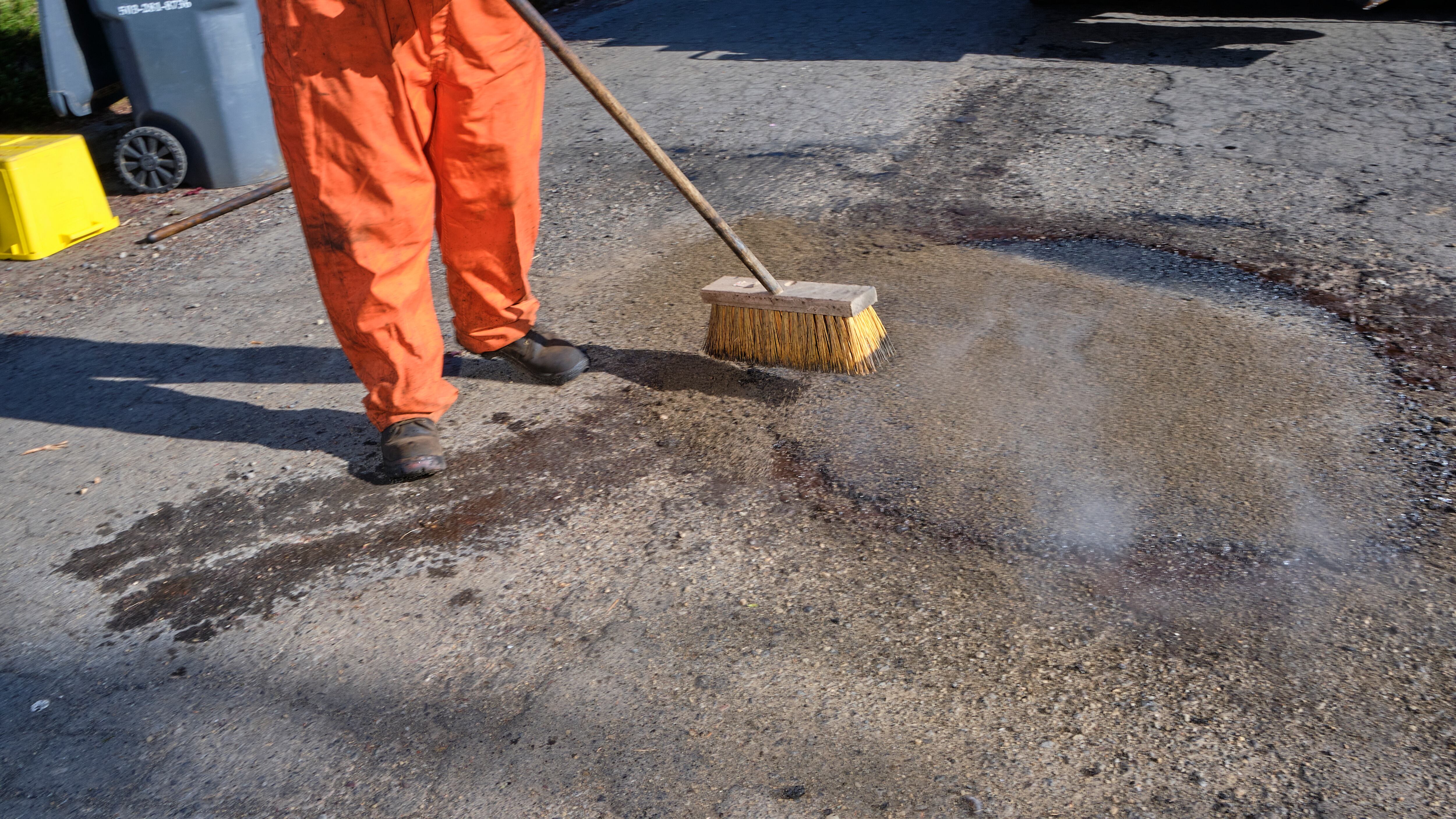The city of Portland’s upcoming budget gap, likely to exceed $100 million, has been consuming the current City Council’s recent discussions, both in public and behind closed doors.
One of the city bureaus facing potentially massive cuts: the Portland Bureau of Transportation.
PBOT’s budget crisis, unlike that of other bureaus that suffer when the city’s general fund dips, is existential: PBOT is mostly funded by gas taxes and parking revenues. But both of those cash sources have steadily declined in recent years, leaving the bureau with a funding gap for the past seven consecutive years. (Cuts have been largely averted, though, thanks to last-minute maneuvers to fill the holes. That’s unlikely to happen this year, given the overall budget crunch.)
This year, director Millicent Williams recently told the Transportation and Infrastructure Committee, looks nothing like previous shortfalls.
Williams said Wednesday morning her bureau was staring down a $38 million budget gap this upcoming fiscal year that, if it’s not whittled down in a meaningful way, would affect nearly every primary service the bureau provides: street and sidewalk repairs and maintenance, paving, pedestrian safety improvements, and street cleaning.
“Thinking about the very real consequences of that underinvestment is what keeps me up at night,” Williams told members of the council committee. “Assets failing. Safety compromised. Livability diminished. Public trust destroyed.”
Related: Portland officials neglected street paving for decades. Now your tires pay the price.
Unlike last year, when the former City Council filled much of the city’s budget holes with unanticipated excess revenue from the Portland Clean Energy Fund (including $8 million to help close PBOT’s deficit), the current council seems unlikely to consider such moves. That leaves PBOT in a difficult, and worse, position than it was in this time last year.
“We will not be the same bureau, and we will fall even further behind,” Williams said. “Cuts at this scale are truly unprecedented for PBOT. If they go through, we are deeply concerned about our ability to deliver even the most basic transportation services.”
Among the issues the bureau has been unable to temper, Williams told the committee, was people seeking shelter, “burrowing under our bridges” and causing damage: “We’ve not been able to secure them in such a way that would keep people out without it looking uninviting as a city.”
Williams also spoke briefly of PBOT money that’s tied up in federal grants, and therefore could be threatened by President Donald Trump’s ever-evolving list of executive orders that cast intense scrutiny on federal funding that flows to cities and states. Some $115 million of PBOT’s grant money, Williams said, comes from the state and is therefore “in suspense.”
Councilor Olivia Clark, chair of the transportation committee, said it would be “criminal” of the council not to figure out a way to make PBOT financially stable moving forward by finding other ways to fund it.
City administrator Mike Jordan is set to release his proposed budget at the end of the month. Various councilors have been emailing Jordan in recent weeks, sending him and Mayor Keith Wilson their preferences of city functions to cut to achieve a balanced budget.

